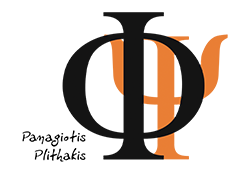
In the post-modern era, Philosophical Counseling comes to meet man’s need for an optimal, excellent life.
However, a necessary condition for “well-being” is “self-knowledge” and “inner peace”.
Psychology in Ancient Greece was part of philosophy.
Pythagoras, the Ionian philosophers, Plato, Epicurus, Epictetus and the Stoics, as well as Plutarch and Galen were some of the philosopher-writers who dealt with matters concerning the soul.
Socrates, with his philosophical dialogues, inaugurates a method that foreshadows the type of the modern philosophical counselor, while the Stoic philosophers and Epicurus developed “spiritual exercises” reminiscent of the exercises that modern cognitive therapists use for their clients.
Natural philosophers were the first to define the constitution and motion of the soul. Then Pythagoras and his students dealt thoroughly with the virtues and values of life as well as with mental treatments. Plato saw things within the whole of the unified world and Socrates’ maxim “Know thyself” – the oldest of the three Commandments inscribed at the entrance to the Temple of Apollo in Delphi – had become the central idea of philosophy.
Most philosophical schools of antiquity saw philosophy not as a teaching of some abstract theory, but rather as the “art of living”.
The philosophical act, says Hadot in Philosophy as a Way of Life, was for the Hellenistic Roman schools “a process that leads us to wholeness and makes us better. It is a conversion that turns our life upside down, that lifts the individual from an inauthentic life situation to an authentic life attitude, to self-awareness, inner peace and freedom“. (Raabe, Philosophical Counselling, Theory and practice).
Self-awareness, inner peace and freedom are the art of living for Foucault.
In Power, Ethics and Knowledge he says: “What surprises me is that in our society art has become something connected only to objects and not to people or life.
But could not the life of each of us become a work of art? Why should the lamp or the house be an artistic object and not our life?” (Foucault, Power, Ethics and Knowledge).
Philosophical Counseling has a depth of time that starts from wild thought and reaches postmodern rhetoric.